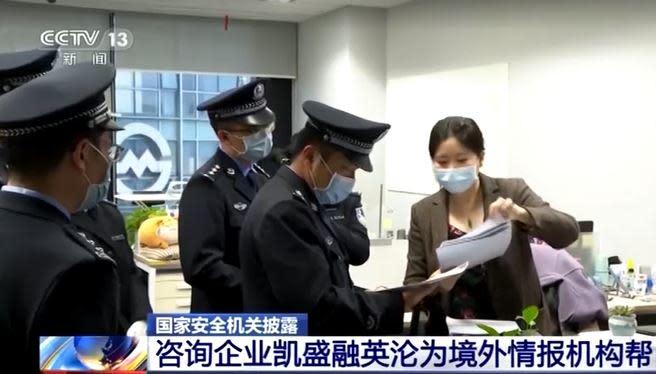Why working in China is getting "very risky" for some U.S. companies
The risks of doing business in China are increasing for foreign companies. The offices of Capvision, a consulting firm with offices in New York and Shanghai, and two American firms have been raided in recent weeks as Chinese authorities exercise their power under a new security law.
Police showed up out of the blue in early May at the Chinese offices of Capvision, searched the premises and questioned employees.
Navy releases video of U.S. destroyer's close call with Chinese warship
Earlier this spring, U.S. firms Bain & Company and the Mintz Group also had their Chinese offices raided. Five of Mintz's Chinese employees were detained.
All three companies did business gathering information on Chinese companies for U.S. investors.

After the Capvision raid, Chinese state TV even aired a special report alleging, without presenting any hard evidence, that the company had lured Chinese citizens to spill state secrets.
Capvision kept its response to the raid low-key, saying on social media that it would "review its practices," with direction from China's security authorities.
But James Zimmerman, a business lawyer who works in Beijing, told CBS News the raids have spooked foreign businesses.
"Everything's a threat, you know," Zimmerman said. "Unfortunately, in that kind of environment it's very difficult to operate — when everything is viewed as a national security matter and… it looks as if…. anything you do could be considered to be spying."
China calls U.S. concern over spying cargo cranes "paranoid"
The billionaire boss of Twitter and Tesla, Elon Musk, was lionized when he visited China last week. He had a meeting with China's top vice premier and got a rapturous welcome from employees at his Tesla facility in Shanghai.
He and other big players in China, including the bosses of American giants like Apple and Starbucks, may be untouchable, but smaller businesses are worried.
"A lot of folks are starting to, you know, rewrite their strategic plans just because of the tension," said Zimmerman, noting that the increasing crackdown by Chinese authorities "makes it politically very risky for them."
Paradoxically, China recently launched a campaign to attract new business from overseas. But many investors have cold feet. A new counterespionage law is due to take effect on July 1, and they worry it may be used as a political weapon to punish certain firms by redefining legitimate due diligence as spying.
Why the PGA Tour and LIV Golf agreed to merge
